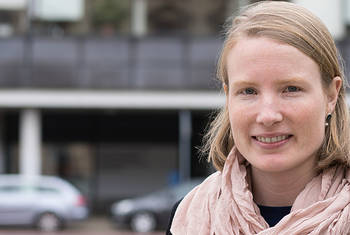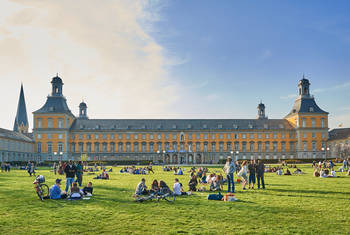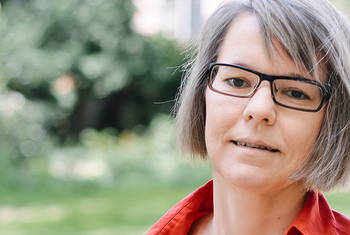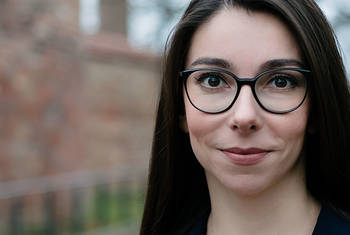Amelie Schiprowski How Important Are Caseworkers In Helping the Unemployed To Find Work?
Amelie Schiprowski is an Assistant Professor of Economics at the University of Bonn and an Affiliate of the Center for Economic Studies (CESifo). Having completed her doctoral work at the University of Potsdam (2018), Schiprowski’s research focuses on Empirical Labor and Public Economics. Schiprowski was the 2020 recipient of the Joachim Herz Award in Economics.
Area of Research
Economics
since 2019
Assistant Professor in Economics
University of Bonn (Rheinische Friedrich-Wilhelms-Universität Bonn) (more details)
since 2019
Research Fellow
Institute of Labor Economics (IZA)
since 2019
Research Affiliate
Institute for Economic Research (CESifo)
2018-2019
Research Associate
Institute of Labor Economics (IZA)
2018
Dr. rer. pol. in Economics
University of Potsdam (Universität Potsdam)
Summa cum laude
2013-2018
Research Affiliate
Institute of Labor Economics (IZA)
2012-2018
Research member
DIW Berlin Graduate Center
2010-2012
Master in Economics
Sciences Po and Ecole Polytechnique
2009-2010
Exchange Program in Economics
University of Pennsylvania
2007-2010
Undergraduate Studies
Sciences Po
Economics and Social Sciences
- American Economic Review
- Journal of Public Economics
- Labour Economics
- Member of the Research Cluster “ECONtribute: Markets & Public Policy”
- Member of the Collaborative Research Center Transregio 224 “Economic Perspectives on Societal Challenges”
Prizes
- Joachim Herz Award in Economics (2020)
- Ph.D. grant of the German Academic Foundation, Studienstiftung (2014-2017)
- Ph.D. grant of DIW Berlin (2012-2013)
- Study grant of the German Academic Exchange Service, DAAD (2010-2011)
- Fulbright travel grant (2009-2010)
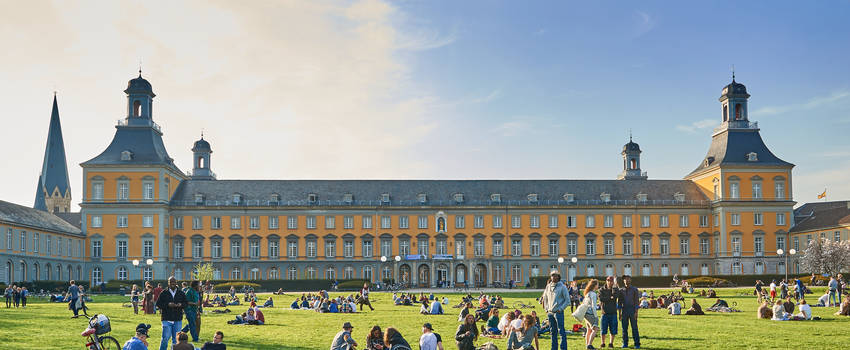 © University of Bonn
© University of Bonn

University of Bonn (Rheinische Friedrich-Wilhelms-Universität Bonn)
Bonn is one of the large universities in Germany, with around 36,000 students, 550 professors, 6,500 other staff staff. It offers a wide disciplinary spectrum comprising some 200 different degree programmes, from Agricultural Science to Tibetan Studies. This diversity is what characterizes Bonn as a full-range university with a strong international orientation. In many international university rankings Bonn is placed among the 100 best universities in the world.Its academic and research profile features internationally renowned specializations in the fields of Mathematics, Physics/Astronomy, Economics, Chemistry, Pharma Research, Biosciences, Genetic Medicine, Neurosciences and Philosophy/Ethics. Other disciplines, such as Geography and Law, are of outstanding importance within the German research scene.
The Rheinische Friedrich-Wilhelms-Universität Bonn is rooted in a long tradition going back almost 200 years. It was founded in 1818 by Friedrich-Wilhelm III, the Prussian king whose name it bears. Imbued with the spirit of Wilhelm von Humboldt, the university quickly joined the circle of Germany's most distinguished universities and became a major pole of attraction for leading scholars as well as students.The list of famous professors ranges from the astronomer Friedrich Wilhelm Argelander (1799-1875), through the chemist August Kekulé von Stradonitz (1829–1896) and political economist Josef Schumpeter (1883–1950) to the philologist Ernst Robert Curtius (1886–1956) and the theologists Karl Barth (1886–1968) and Joseph Ratzinger (born 1927), now Pope Benedict XVI. Bonn's best-known students include Heinrich Heine, Karl Marx, Friedrich Nietzsche, and Konrad Adenauer.
The university is proud of a long list of award-winning scientists and scholars, with about twenty Leibniz Prize winners and around thirty ERC grantees. In the last three decades two professors have received the Nobel Prize: Wolfgang Paul (for Physics, 1989) and Reinhard Selten (for Economics, 1994). (Source: University of Bonn)
Institute
The Collaborative Research Center (CRC) TR 224 – EPoS
The Collaborative Research Center (CRC) TR 224 – EPoS is a cooperation between the University of Bonn and the University of Mannheim. Funded by the German Research Foundation (DFG), it aims to analyze and provide policy proposals that address three key societal challenges: how to promote equality of opportunity; how to regulate markets in light of the internationalization and digitalization of economic activity; and how to safeguard the stability of the financial system.
Map
Caseworkers try to help unemployed people to find work, providing support and assistance in regularly scheduled meetings. In this video, AMELIE SCHIPROWSKI seeks to quantify the economic value of these caseworker meetings. Relying on data from Swiss unemployment registers and focusing on the impact of unplanned caseworker absences, Schiprowski identifies a clear correlation between the frequency of caseworker meetings and the length of time a jobseeker spends out of work. Schiprowski also identifies significant variation in outcomes between different caseworkers and the effort to pin down what skills are most relevantin this regard is a clear focus for research going forward.
LT Video Publication DOI: https://doi.org/10.21036/LTPUB10885
The Role of Caseworkers in Unemployment Insurance: Evidence from Unplanned Absences
- Amelie Schiprowski
- Published in 2020


